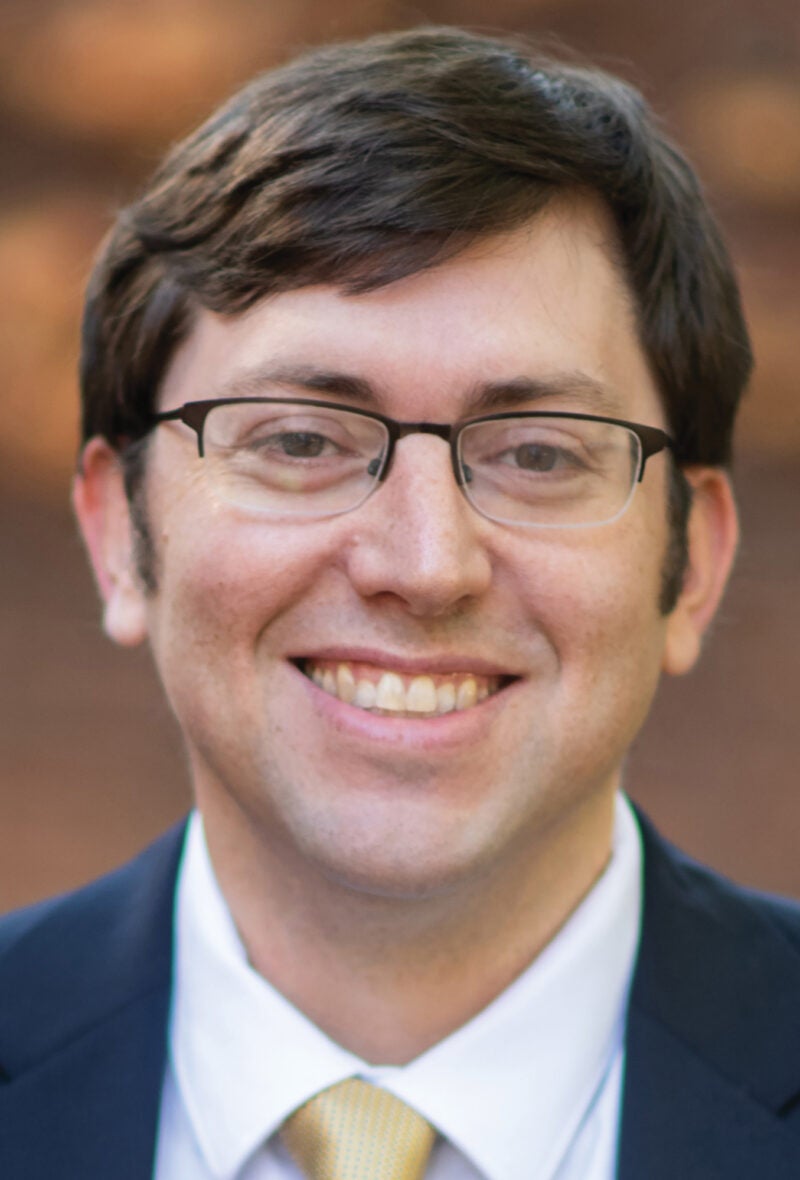Richard Re, a leading expert on constitutional law, federal courts, and criminal procedure, joined the Harvard Law faculty as a professor of law on July 1. He served as the Ropes and Gray Visiting Professor of Law at Harvard Law School from 2024 to 2025, during which time he received the Charles Fried Award.
Previously, Re was the Elizabeth D. and Richard A. Merrill Professor of Law at the University of Virginia School of Law, having joined the University of Virginia law faculty in 2020. He formerly taught at UCLA School of Law, where he was a faculty co-director of PULSE, the Program on Understanding Law, Science & Evidence.
“Richard is a scholar of extraordinary breadth and depth,” said Harvard Law School Dean John C.P. Goldberg. “His work manages to advance academic inquiry while also being useful to the courts. At the same time, he is a devoted and admired teacher and colleague.”
“I’m thrilled to be joining the Harvard Law School community, after a terrific year getting to know the students, staff, and faculty,” said Professor Re. “Harvard is at its best when it both encourages and challenges us all to learn, and I am grateful for the chance to be part of that tradition.”
Re has written numerous articles in leading law journals, including most recently, “A Law Unto Oneself: Personal Positivism and Our Fragmented Judiciary,” published in Virginia Law Review (2024); “Artificial Authorship and Judicial Opinions,” published in George Washington Law Review (2024); and “Personal Precedent at the Supreme Court,” published in the Harvard Law Review (2023).
His 2016 Georgetown Law Journal article, “Narrowing Supreme Court Precedent from Below,” received the annual prize from the AALS Federal Courts Section for the best paper on federal courts by an untenured professor. His subsequent research garnered attention in 2018 as part of an amicus brief he wrote for the United States Supreme Court case Hughes v. United States. During oral argument, the justices discussed Re’s brief criticizing the “Marks Rule,” the doctrine which holds that, for an appellate decision in which no single rationale for the result is embraced by a majority of the members, the ‘narrowest’ rationale expressed by a concurring justice is deemed to be the rationale for the Court. In 2017, students at UCLA selected Re as Professor of the Year.
Re clerked for then-U.S. Court of Appeals for then D.C. Circuit Judge Brett Kavanaugh and later for U.S. Supreme Court Justice Anthony Kennedy ’61. He also worked as an Honors Program attorney in the U.S. Department of Justice and practiced law at Jones Day, in Washington, D.C.
Re earned his bachelor’s degree in social studies from Harvard University, his master’s degree in political thought and intellectual history from the University of Cambridge, and his Juris Doctor from Yale Law School. He contributes to the Divided Argument Substack and maintains his own blog, “Re’s Judicata.”
Want to stay up to date with Harvard Law Today? Sign up for our weekly newsletter.
